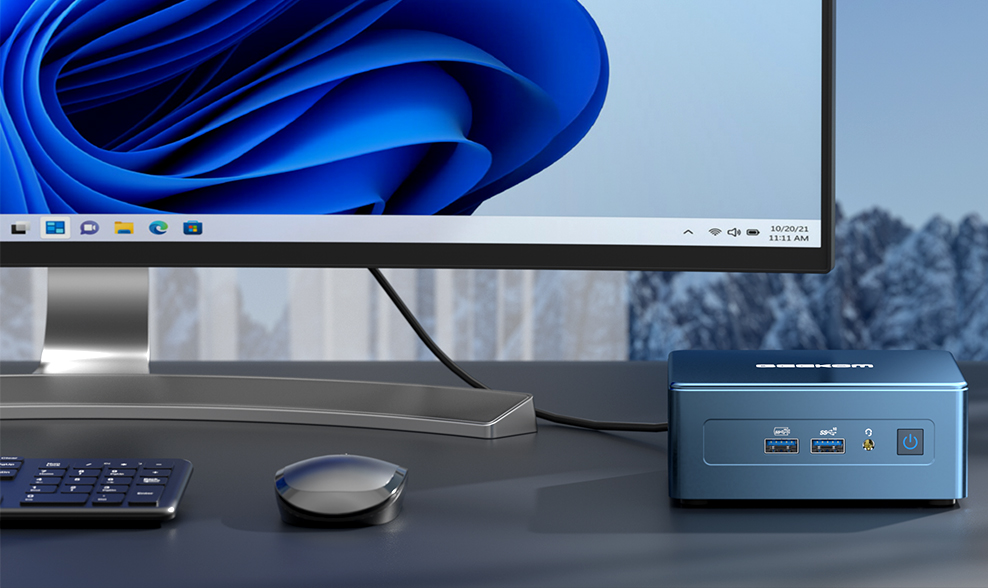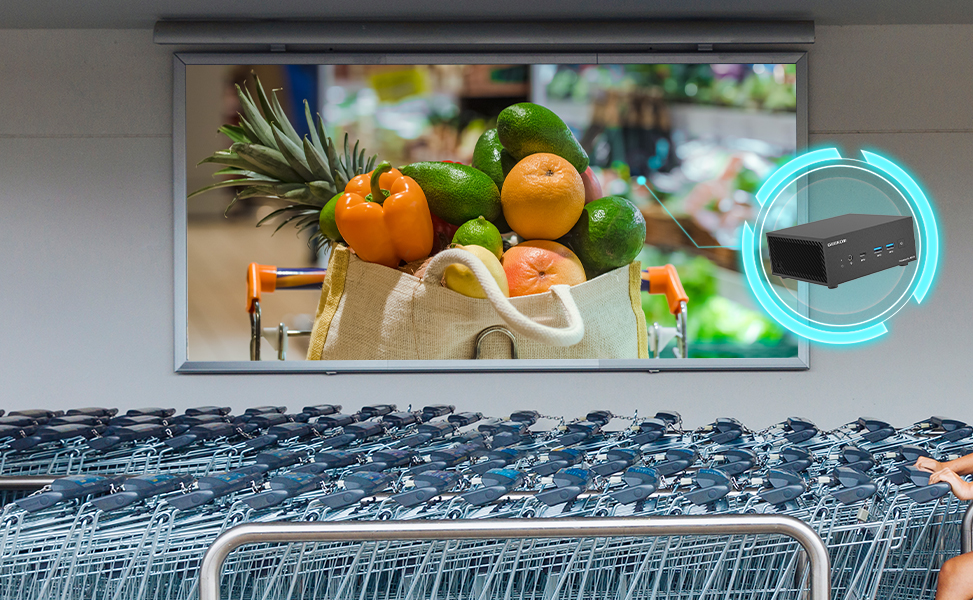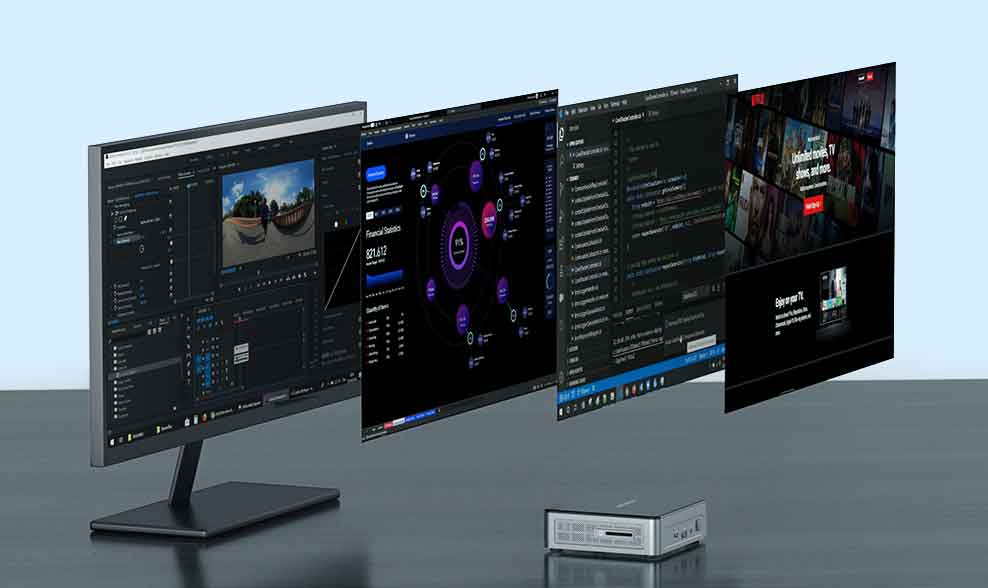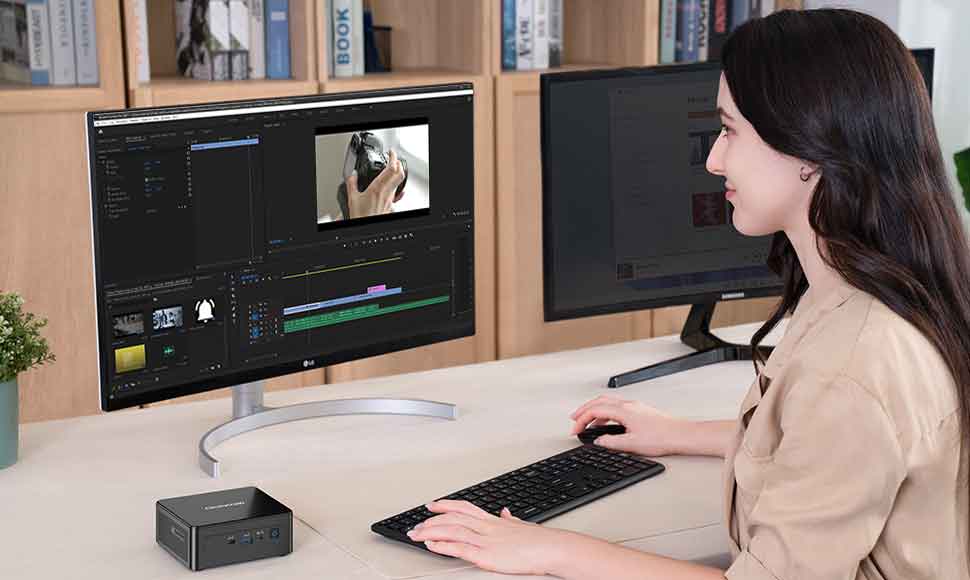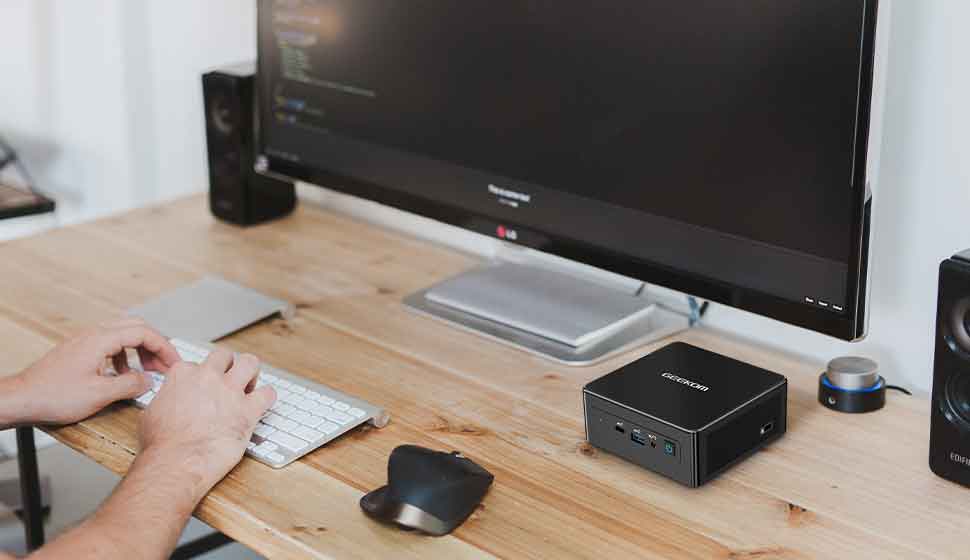Using a small form factor personal computer as a home server is becoming increasingly popular as the technologies behind these computers continue to evolve. Whether you're looking for a central location to archive all your files or a place to host your own website, a mini PC that runs stable, quiet and uses very little power could be the perfect solution.
The possible uses of a home server
A small home server can be used for many different purposes, but the most common use cases are as follows:
Central storage for shared data
The problem in every household is that data is scattered across different computers and external storage devices. By storing it on a home server, all family members can easily access the shared data and the files are better protected. However, if you choose to store all of your data on a personal home server drive, you must have a solid backup plan. PCs with multiple drives tend to work better than those with just one because you can keep a copy of important files on another drive in case the shared drive fails.
You can even convert your private file server into cloud storage so you can access your data from anywhere in the world. A home cloud server offers many of the same features as open cloud solutions like Google Drive and One Drive, but with more privacy and security because it relies on your own storage.
Home media server
Storing media files on a small home server is not only more convenient for the whole family, but it also takes the load off your main work PC. You can stream the TV shows and movies stored on the home media server from a mobile phone, tablet, smart TV or computer as long as these devices are on the same network. If there are children in the house, parents can also use encryption to control what content they can access.
Central backup solution
It is important that you regularly back up important data. Hard drives can break, files can be accidentally deleted, and malware can encrypt our folders. These are everyday things that can happen to anyone. Software can be reinstalled, movies and series can be redownloaded, but family photos and videos cannot be restored.
Creating backup copies doesn't have to be a manual task. If you have a private home server, you can automate the regular backup of your files using software like BackupPC or UrBackup.
Home security system
A home server system can be used to host your own home security system as long as you have some nice security cameras installed. You can set up your own security system using free software, and you can also integrate paid services from companies like Ubiquiti and Blue Iris into your home network.
Hosting your own website
You can also use a home server to host your own blog or website. Hosting a small website from home can be relatively easy for people with sufficient IT knowledge, but for newbies we recommend reading some guides. Also remember that you need a good internet connection to run a website. If your internet speed is too slow, you should improve it first.
surveillance
A home server also gives you the perfect way to monitor your network or smart home. There is a free version of PRTG Network Monitor software that helps you keep an eye on bandwidth usage, CPU/memory usage, free disk space, etc.
In addition to the home network, you can also use the server to monitor the house or apartment. Some smart home sensors can monitor things like temperature, oxygen levels, humidity, and power usage. You can even get a dashboard that shows the data in real time.
Transforming a Mini PC into a home server
Any PC can be turned into a home server, be it an old laptop or a new DIY desktop PC, but for something that needs to run 24/7, a Mini PC can be an ideal solution. Before purchasing, you should consider the following things:
Performance
How much power you need to build your home server depends on what you want to do with it. If you want a home media server, a Mini PC with an entry-level processor and a small amount of memory will suffice. However, if you want to host your own website from home, you should consider a higher configuration Mini PC.
Storage space
Storage space is essential for most use cases. We recommend you buy a Mini PC with at least two drives to build your home server. If the mini PC you choose can only accommodate an internal drive, be sure to purchase an external drive to back up all your important files.
Connectivity
Since most of a home server's applications are network-based, both your household's bandwidth and the Mini PC's connectivity are very important factors. For a home media server, you should choose a Mini PC with at least a Gigabit Ethernet jack or dual-band WiFi 5. To host a website, you should purchase a model with 2.5 Gbps or 10 Gigabit Ethernet connectivity.
Energy efficiency
Mini PCs are generally more energy efficient than full-sized desktop PCs because they use less power-hungry hardware. Some of the latest Mini PCs only use less than 5W when idle, so leaving them running 24/7 won't significantly increase your family's electricity bill.
Noise
For a computer that is constantly in use, you should ensure that it makes as little noise as possible. Most Mini PCs are equipped with one or two small fans that don't make much noise even at full speed. There are also completely fanless Mini PCs that are perfect for those who only need the basic features of a home server, such as: B. as a central storage for shared files.
Our recommendations
If you are thinking about setting up a home server for your family, we recommend you take a look at the GEEKOM Mini PCs. They are all equipped with powerful and efficient Intel Core processors and support two internal drives.
The GEEKOM Mini IT8 SE is perfect for use as a home file server thanks to its affordable price, good power efficiency and ability to host up to 3TB of internal storage. The Mini IT11, on the other hand, offers enough power and features for hosting a small website. Some might argue that it lacks high-speed Ethernet ports, but there are two USB4 ports onboard with a bandwidth of 40Gbps. With the right hub, you can easily convert them to 2.5Gbps Ethernet ports.
Conclusion
Building your own small home server with a Mini PC is fun, affordable and offers a lot of advantages. In addition to the benefits discussed in this article, there are others, but many of them won't become apparent until you get your server up and running, so why not get started now?

